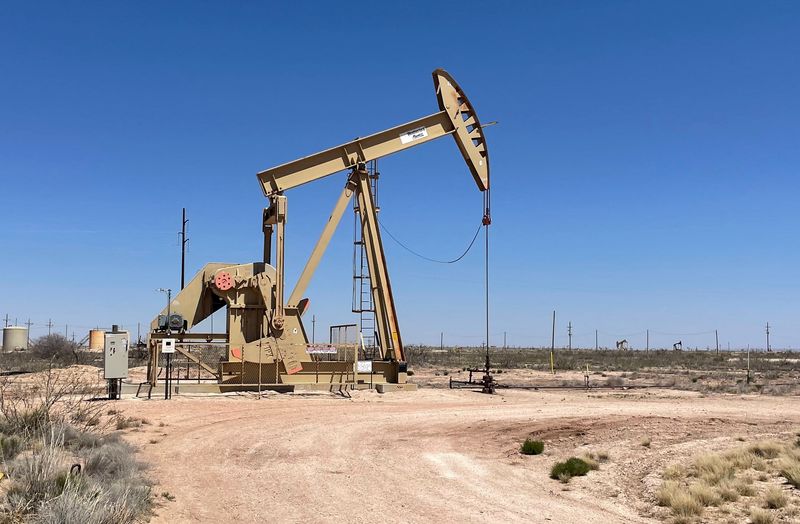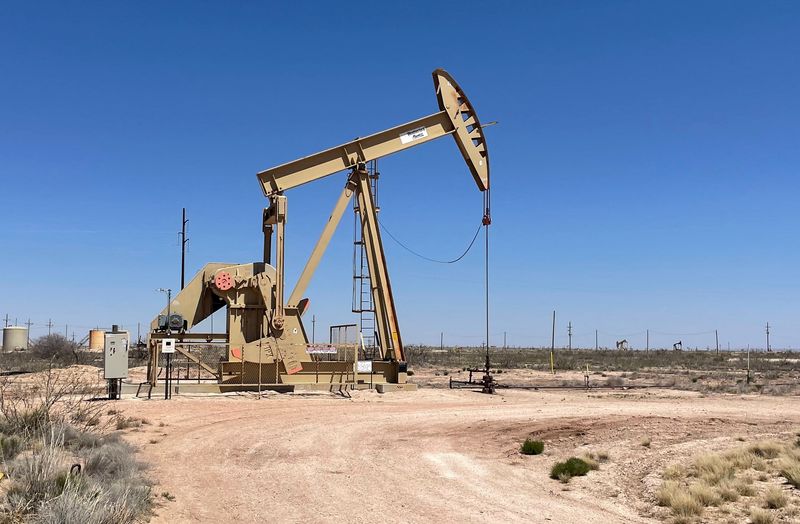
By Robert Harvey
LONDON (Reuters) -Oil prices fell on Friday on receding fears over the impact of Hurricane Rafael on oil and gas infrastructure in the U.S. Gulf while investors also weighed up fresh Chinese economic stimulus.
Brent crude oil futures lost 93 cents, or 1.23%, to $74.70 a barrel by 1415 GMT. U.S. West Texas Intermediate (WTI) crude was down $1.05, or 1.45%, at $71.31.
The benchmarks have reversed Thursday’s gains of nearly 1%, but Brent and WTI are still on track to finish 2% up over the week, with investors also examining how U.S. President-elect Donald Trump’s policies might affect oil supply and demand.
Hurricane Rafael, which has caused 391,214 barrels per day of U.S. crude oil production to be shut in, is forecast to weaken and move slowly away from U.S. Gulf coast oilfields in the coming days, the U.S. National Hurricane Center said.
Downward price pressure also came from data showing crude imports in China, the world’s largest oil importer, fell 9% in October – the sixth consecutive month to show a year-on-year decline.
“The weakening of oil imports in China is due to weaker demand for oil as a result of the sluggish economic development and rapid advance of e-mobility,” said Commerzbank (ETR:CBKG) analyst Carsten Fritsch.
China kicked off a fresh round of fiscal support on Friday, announcing a package that eases debt repayment strains for local governments.
The nation’s economy has faced strong deflationary pressures in the face of weak domestic demand, a property crisis and mounting financing strains on indebted local governments, limiting their investment capability.
“There were no additional stimulus measures targeting domestic demand, hence the disappointment weighing on prices,” UBS analyst Giovanni Staunovo told Reuters.
Prices had risen on Thursday on expected actions by the incoming Trump administration, such as tighter sanctions on Iran and Venezuela, which could limit oil supply to global markets.
“In the short-term, oil prices might rise if the new President Trump is quick on the draw with oil sanctions,” said PVM analyst John Evans.

U.S. Federal Reserve Chair Jerome Powell said on Thursday that Trump’s proposed policies of broad-based tariffs, deportations and tax cuts would have no near-term impact on the U.S. economy, but the Fed would begin estimating the impact of such policies on its goals of stable inflation and maximum employment.
The Fed cut interest rates by a quarter of a percentage point on Thursday.
This post is originally published on INVESTING.




